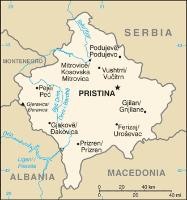Late last month, U.N.-sponsored negotiations on Kosovo's final status came to a close -- predictably without an agreement. The negotiations have been conducted under the auspices of a "troika" of envoys from the European Union, the United States, and Russia. Dec. 10 is the deadline set for them to complete their work and submit a final report to the U.N. secretary-general. The longstanding demand of the Kosovo Albanian side is well known to the general public: independence. But what has the Serbian government brought to the negotiating table? And what, if any, compromise solutions were proposed by the international mediators? An article from the Belgrade-based weekly Vreme provides the details. The article originally appeared in Vreme following the fifth round of negotiations in Brussels and shortly before the sixth and final round that took place outside of Vienna. World Politics Review presents it here in an abridged English translation.
Keep reading for free
Already a subscriber? Log in here .
Get instant access to the rest of this article by creating a free account below. You'll also get access to three articles of your choice each month and our free newsletter:
Subscribe for an All-Access subscription to World Politics Review
- Immediate and instant access to the full searchable library of tens of thousands of articles.
- Daily articles with original analysis, written by leading topic experts, delivered to you every weekday.
- The Daily Review email, with our take on the day’s most important news, the latest WPR analysis, what’s on our radar, and more.

